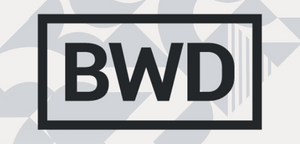Want to work in consulting? Learn more about what it’s like being an actuary in reward consulting at PwC and if it’s the right actuarial role for you…
Working in Actuarial at PwC you can choose to specialise in Reward, Pensions or Actuarial and Insurance Management Solutions; I work in the Reward team. Reward plays a vital role in every business and an effective reward plan means businesses have motivated employees, who will be able to bring success in the work they do and bring success to the business.
Even though reward is a non-traditional field for actuaries, I was attracted to work in this area as I’ll gain a wide exposure and the skills to become a well-rounded actuary.
Why did you choose the actuarial profession?
I did a summer internship in Actuarial during my penultimate year of university and loved the experience. I was then fortunate to receive an offer at the end of my internship for a graduate role in this area.
I’ve always had a passion for applying mathematics to the real business world, so I chose to study actuarial science at the London School of Economics. My passion grew at university after attending career events to find out more about the world of actuarial.
Most graduates interested in working in actuarial tend to choose pensions or insurance but I was attracted to reward. I enjoy working with a wide variety of professionals to deliver actuarial solutions to clients who may not be as close to the actuarial profession. In my role I get to work with accountants, lawyers, tax advisers and consultants. It makes my job more exciting and fulfilling to be able to add value with my actuarial skills, and communicate complicated concepts to a less technical audience in more interesting and simple ways.
I’m able to gain exposure to really senior members of both my team and my clients. I work directly with some partners and directors, and I love the open-minded culture to ideas from junior members like me. I’ve had opportunities to attend meetings with finance directors, human resource directors and reward directors of many major clients. I’ve learnt so much in each meeting; from communicating effectively in a professional business manner, to thinking on my feet and responding to clients’ comments and questions. Each meeting is an eye-opening experience for me.
The work is also varied. Every project is unique so we need to tailor our approach each time to fulfil different clients’ needs. Different types of companies also have different objectives, so the reward strategies we propose are never the same. I don’t get bored of the work I do as the next project will always be different from the current one, and there’s always something new to learn from each project.
We also work with a number of academics to analyse the trends and psychology of incentives. Did you know that most executives feel that getting paid more than their peers is more important than getting paid more in absolute terms? Or that women tend to prefer incentive plans with lower risk when compared to men? Reward is a science that combines so many different angles and this is what attracted me to working in this area.
What are your main duties?
I advise clients on the best strategies to help their executives and employees to attract, retain, and motivate the best talent in their industries, while complying with tax, regulatory and governance requirements.
The areas we advise clients on include designing long-term incentive plan structures, risk analysis and performance measurement, financial modelling, benchmarking, job evaluation and grading as well as providing tax, accounting and regulatory advice from a reward perspective.
What are the most stressful parts of the job?
Managing my studies on top of work. Sometimes I have to study in the evenings after work, during study days and during weekends. As we work on a project basis, there’ll be times when I work from nine to five, and times when I have to work extra hours in order to meet deadlines. It’s really important to keep the momentum going by having a good study plan. I try and keep my colleagues aware when I have exams as they’ll be really supportive and helpful to make sure I finish work on time during these periods.
Despite the stress, I find doing actuarial exams really fulfilling and I’m able to learn interesting subjects such as enterprise risk management, finance and investments, and apply these skills to my job. I’d like to qualify as an actuary in order to utilise my actuarial skills to help produce business solutions that are both commercially viable and financially robust.
What was the application process like?
The application process was really straightforward. After passing the first stage, I was successful at my first telephone interview, and then I attended an assessment day at a PwC office. This involved written tests, a group exercise and then I had a final interview with a director from the Reward team.
My advice for interested candidates would be to have lots of practice before each stage in order to be well prepared. I attended mock interview sessions set up by the careers service at my university and was able to improve on my style and content before attending actual interviews. It’s easy to do that with friends or even record yourself with a video camera then evaluate your performance to recognise your strengths and weaknesses. For written tests and group discussion, time management is really important, just like the reality at work, so make sure you plan ahead and set targets for yourself.
Do you have any advice for anyone wanting to get into the profession?
I think the most important part about working as an actuary in Reward is to be passionate about the industry and client services. If you’re passionate about reward, you’ll be able to overcome any challenges you face and become successful.






